Create an online store: Is Mozello the best shopify alternative for small businesses
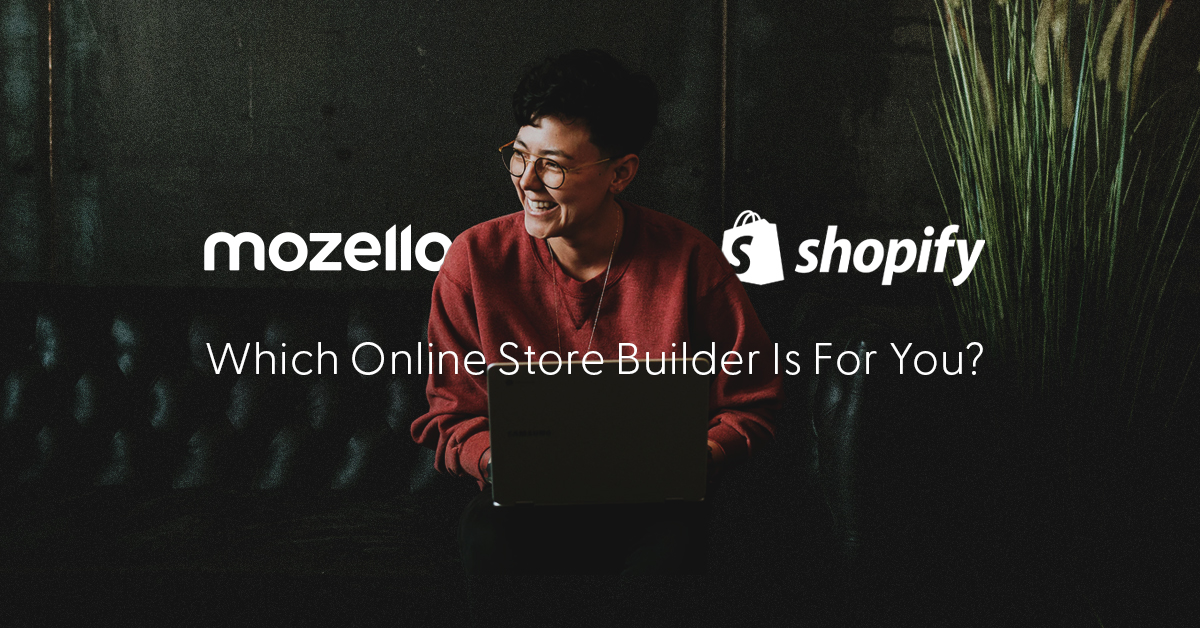
One of the first steps of building a successful online business is choosing the right ecommerce website builder. For better or worse, you're spoilt for choice between Mozello, Shopify, WooCommerce, Wix, BigCommerce, Squarespace, and countless other platforms that let you create an online store.
Choosing one can be a scary decision to make. You will invest a lot of time and resources in creating your store. Discovering that you've made the wrong choice and have to start all over again on a different platform is something that has killed countless businesses before they even saw the light of day.
There is no single “best” platform to start an online store. Each one offers different features, as well as varies in pricing and complexity. It can be difficult to navigate all the offerings, especially if it's your first time figuring out how to make an online store.
We're here to help – in this article, we'll list 7 things you need to consider when choosing the best ecommerce website builder for small business and compare Mozello with Shopify while showing you when Mozello might be a good Shopify alternative for selling your products online.
1. How involved do you want to be in the technical aspects?
If you're building the online store yourself, the platform's complexity is one of the first things you should consider. Though most modern platforms are no-code (meaning you don't need to know a programming language to build an online store), some are more technical when it comes to setup and maintenance.
Those include:
- Hosting – every domain (aka your www. webaddress .com) must be purchased and hosted
- Maintenance – renewing domains, handling payment processor fees, fixing broken features
- Marketing tools – setting up email marketing, popups, integrations
- Design – customizing layouts can require coding
Mozello offers:
- A platform that's built to be used without requiring any technical skills
- Built-in marketing tools that require no setup
Shopify offers:
- Infinitely customizable through code
- Thousands of integrations, but they must be installed and maintained
2. What payment processing options do you need?
For any ecommerce website, payment processing is essential. From card payments and PayPal to bank transfers and niche providers, each online store platform handles this differently.
Based on your market preferences and the sort of services you want to offer, you might be better off choosing different platforms.
While both Shopify and Mozello offer the standard payment options such as Paypal and card payments (through platforms such as Stripe and Braintree), Paysera, they do have distinctions when it comes down to the more niche payment options.
Mozello offers:
- Stripe, Braintree, Paysera, and more
- Bank transfers (A2A) for major Baltic/Nordic banks
- Invoice payments and payment APIs
- Apple Pay, Google Pay (via gateway)
- Multiple niche providers like Klix, Decta, MakeCommerce
Shopify offers:
- Shopify Payments (only in some countries)
- No native A2A bank transfers
- 100+ niche payment gateways
- Apple Pay, Amazon Pay, Meta Pay
Note: Different payment processors will have different payment policies. Most will charge some form of commission, regardless of which ecommerce platform you're using. This comes on top of store revenue percentage, so be sure to understand total payments you'd be paying (Shopify charges 2.9% of store revenue, Mozello does not charge based on revenue).
Both Shopify and Mozello make it easy to set up payment processing, however, Mozello offers more freedom when it comes to the choice of payment gateway and selection of popular local Account to Account payment options in many European countries. Make sure to take a look at what is available in your region, and what the requirements are to get it set up and running.
3. How many marketing features do you need?
There are two main types of people when it comes to creating an online store:
- The type that want full control over every little detail (and are willing to put in the time, effort, and money)
- The type that just wants the website to work and be simple and efficient.
If you're type A, then you require a website builder with infinite options. This is most suited for Shopify, which can be altered through the website code, and also has access to the app marketplace with thousands of integrations to meticulously comb through and choose from.
However, if you're type B, then the combination of simplicity and functionality that Mozello offers could be your best bet to get what you want without the overwhelming selection and need to research and build out your ecommerce store marketing stack. Mozello gives you the essential marketing features to run your online store without complexity.
Pro tip:
Merchants from the EU can integrate the most popular shipping providers (such as DHL, DPD, Omniva, Venipak and more) directly onto their website.
Mozello offers:
- Built-in popups and email collection
- SEO-ready with no coding needed
- Google Analytics and Facebook Pixel integration
- Digital and physical product sales
- Discount codes, variants, shipping, transactional emails
Shopify offers:
- 8,000+ apps and tools
- Custom marketing stack potential
- Most tools cost extra and require setup
- SEO tools may need coding
4. Website design – do you want to get involved in the code, or do you just need something that works?
When you start building your website, there are a few things to consider when it comes to the design.
- Do you have a specific vision of what exactly your website will look like?
- Are you prepared to hire a designer?
- Are you prepared to hire a programmer to implement a custom design?
If you answered yes to all of the questions above, then Shopify's customizability will lend itself well to your website project.
However, if you're not in a position to sink a ton of resources into creating a design from scratch (and hey, maybe you don't even need to!) then Mozello's easy-to-use design editor that relies on a selection of pre-made templates as a starting point and easy website constructor could be the choice for you.
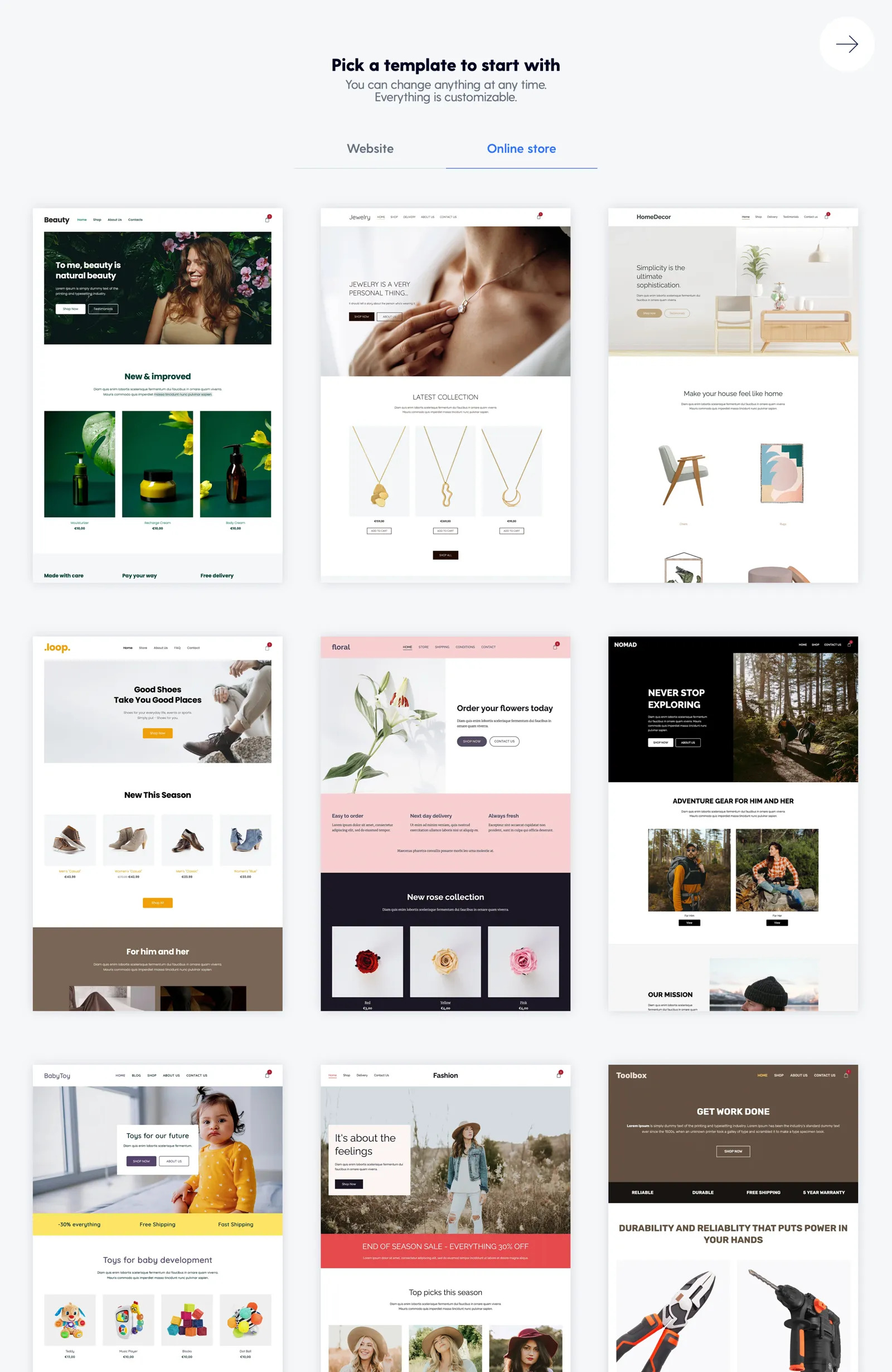
You can select a design that speaks to you, change the layout by adding different content blocks, select your colorway, fonts, backgrounds, add images, customize overlays, and more. Discover a design and layout that best suits your website's personality, as well as your business identity.
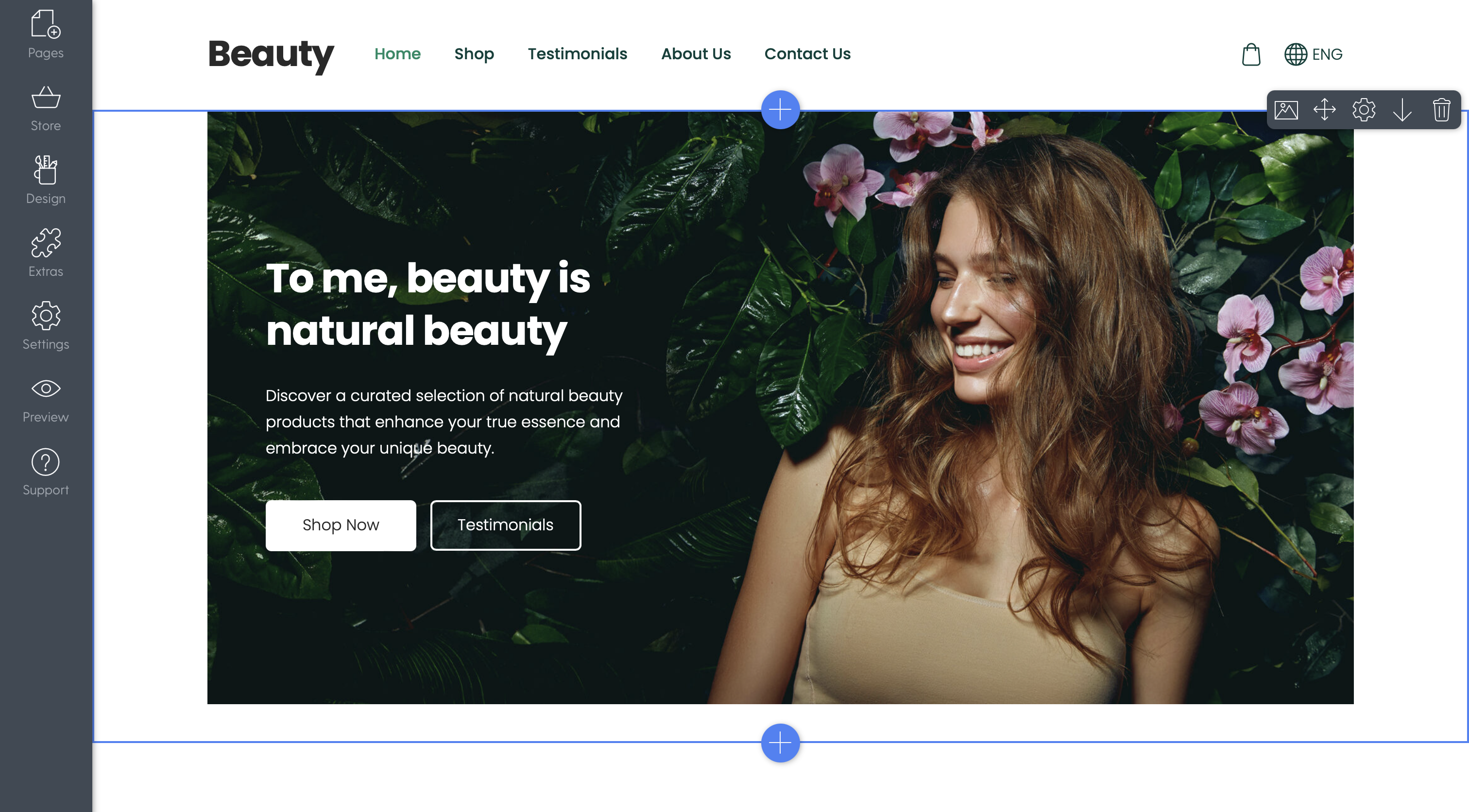
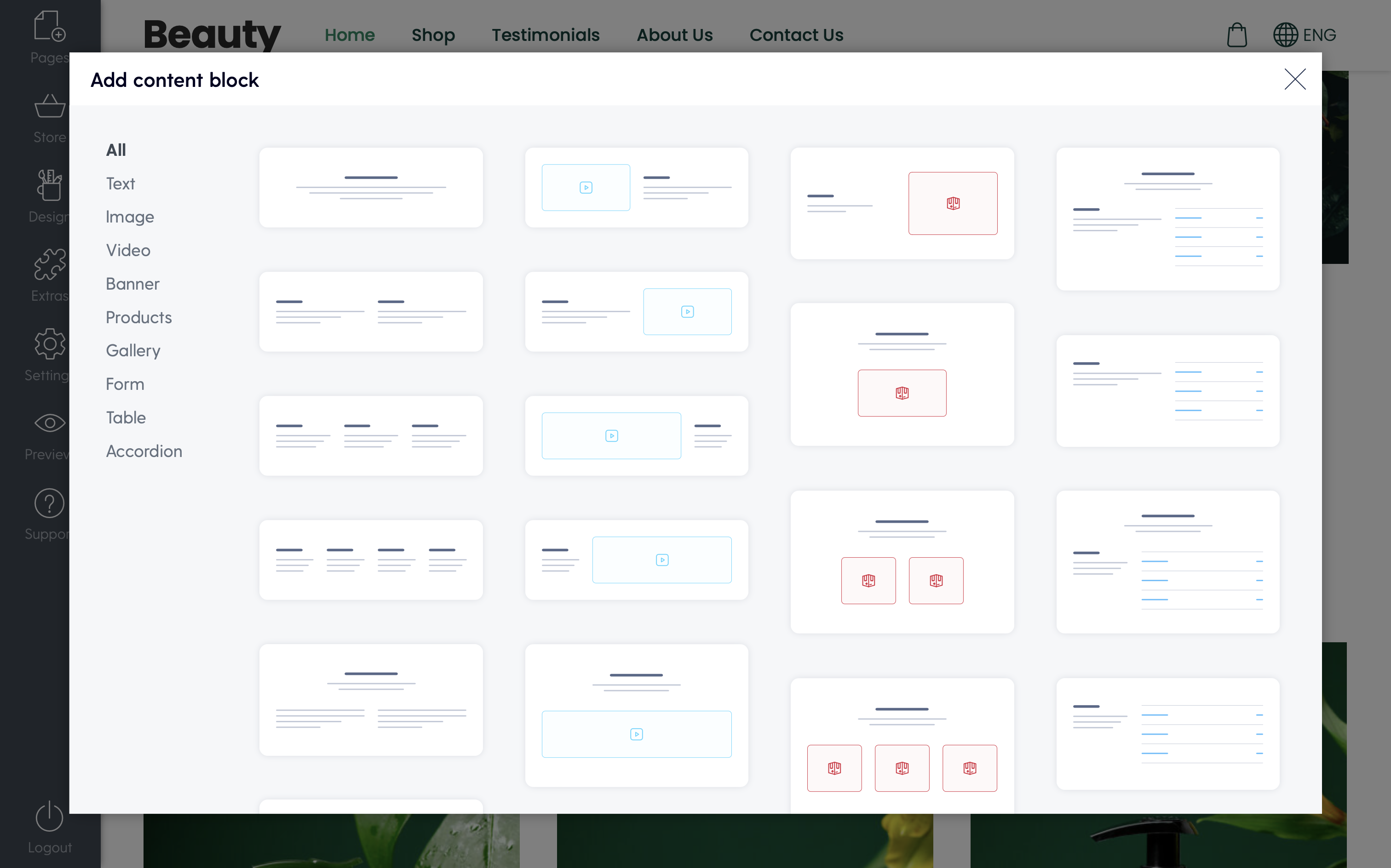
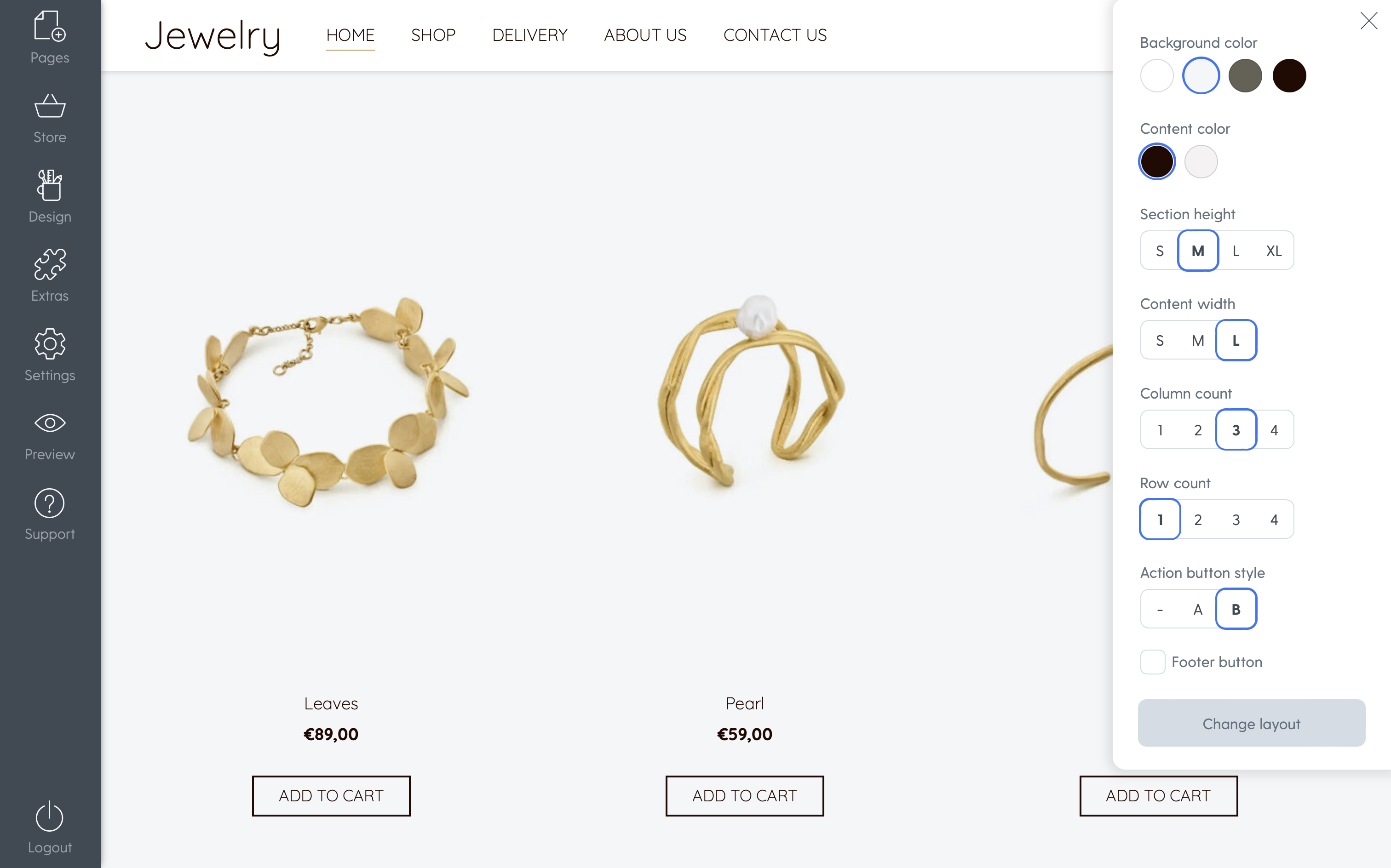
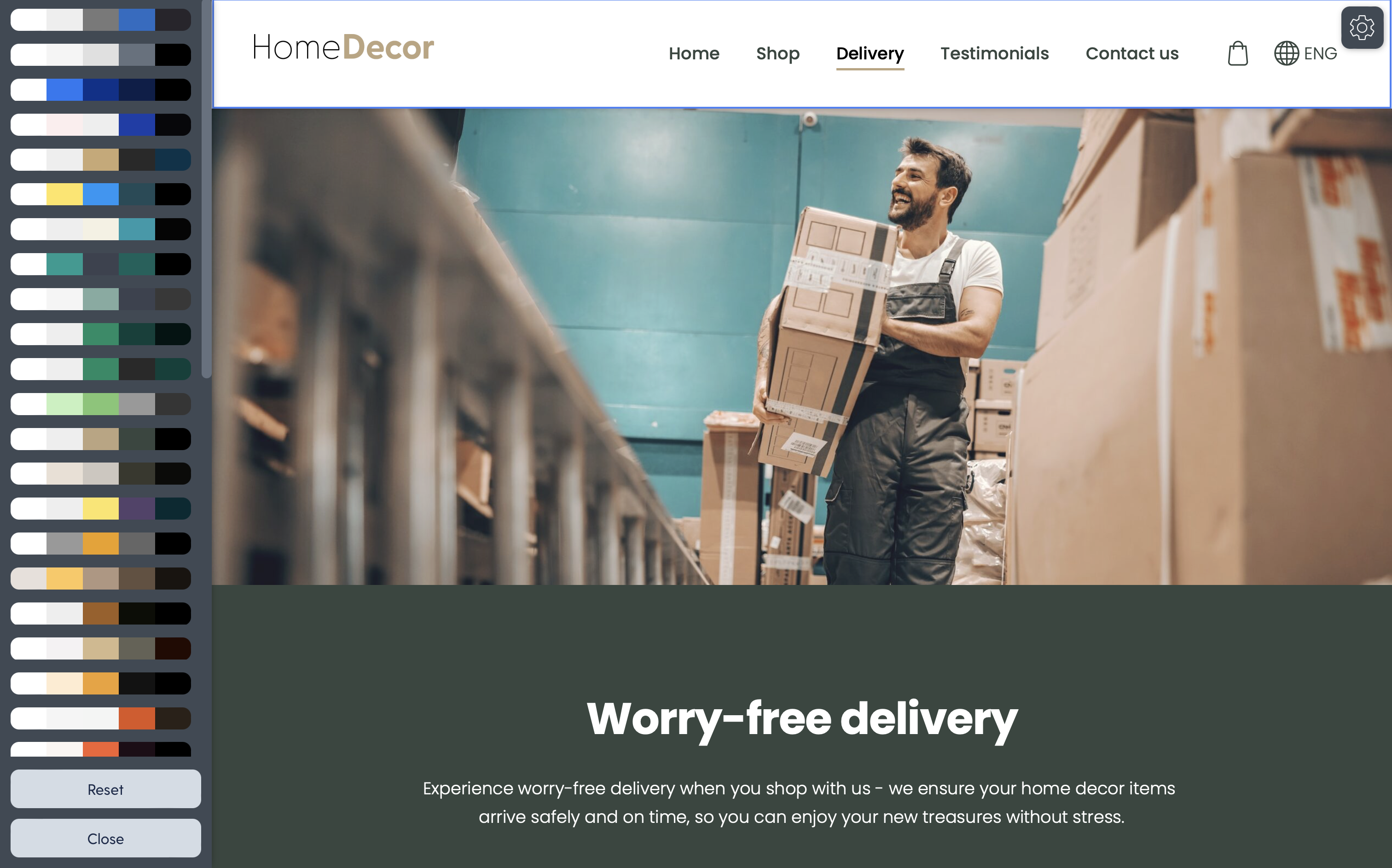
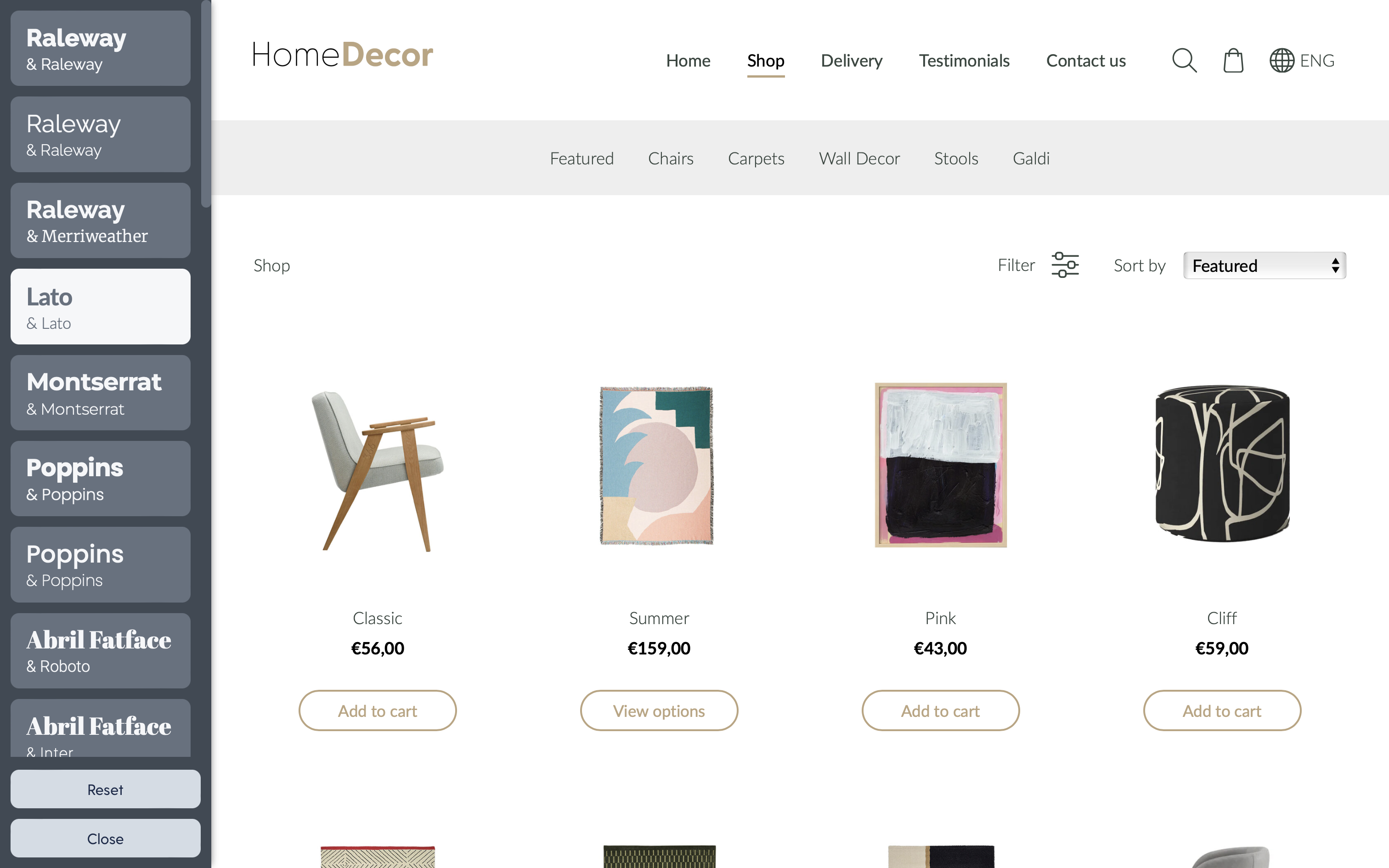
Discover and design the layout in a way that best suits your website's personality, as well as your business identity.
Bonus:
You can change your store design theme on Mozello at any time, whereas with Shopify, once you've chosen a theme, you're stuck with it.
5. Do you need personal customer support?
Things don't always go according to plan, particularly when tech with a lot of moving parts is involved. Moreso, not everyone has the necessary skills to comb the internet and troubleshoot technical issues.
This is where access to customer support becomes a critical consideration.
While both platforms have the standard FAQs and support videos, they have differences regarding one-on-one support.
What Mozello offers:
- Support email is provided
- Telephone support
- Friendly (human) support staff are happy to help
- Responses usually within 24 hrs
What Shopify offers:
- No support email is listed
- Chat bot support
- Responses will take longer and support staff are less likely to immerse themselves into your problem due to high query volume
Worth mentioning:
Mozello is designed so that support is rarely needed, making it ideal if you’re still learning how to create an online store.
6. How much starting capital do you have available?
Any website will incur fees, and this is particularly important to small businesses when they're still at a stage when they're just getting started, and perhaps don't have reliable cash flow yet.
In these cases, it's important to understand what your monthly payments for maintaining the website will be. Here are some of the costs that make up running a website:
You’ll need to cover:
- Domain and hosting
- Platform fee
- Payment processor commission
- Marketing tool subscriptions (if needed)
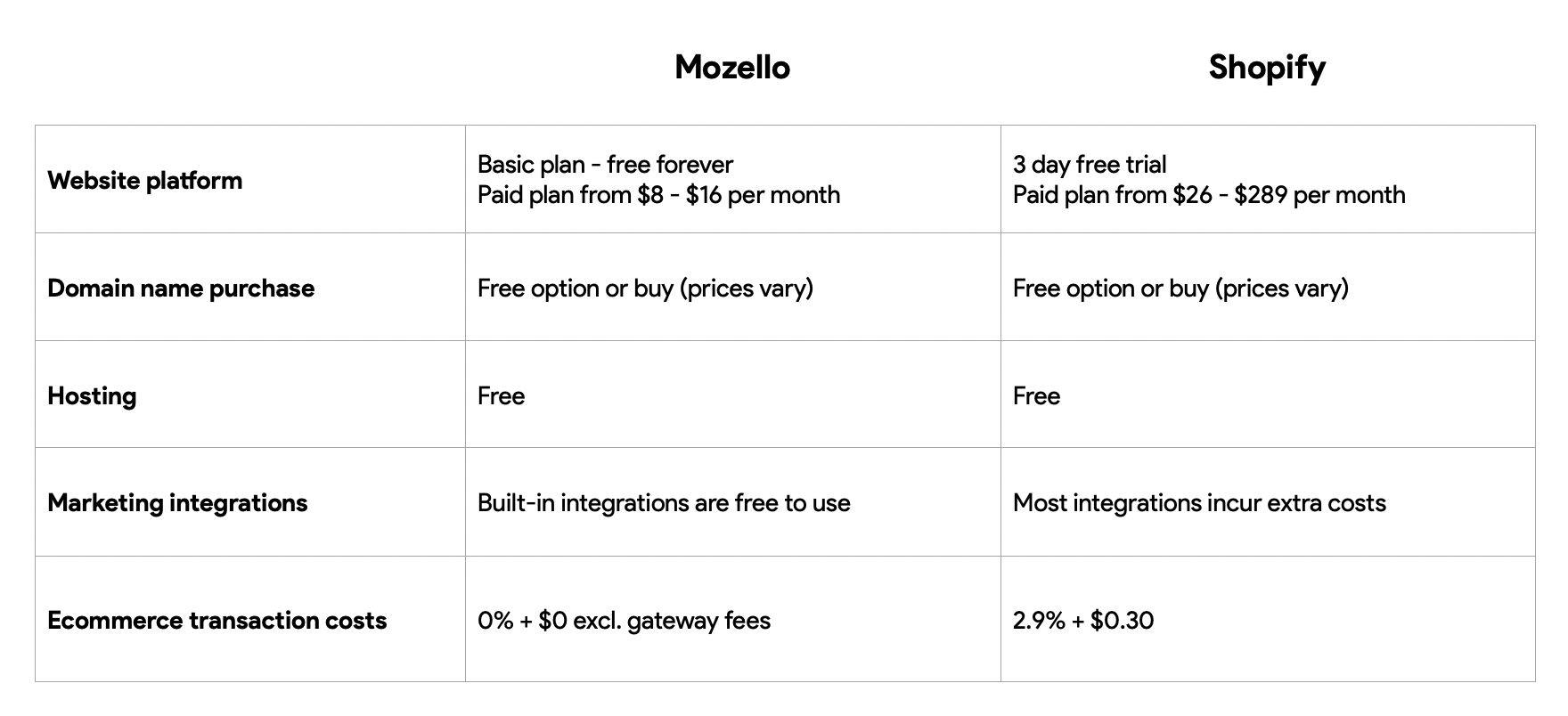
Mozello has a free version, while Shopify costs can quickly stack up. Check their pricing pages for exact figures.
7. Do you want to make your store available in multiple languages?
The lingua franca of the Ecommerce world has become English, but only 18% of the world speaks English. For the rest of the world, it's reasonable to prefer to shop in your native language. What's more – offering your store's content in people's own languages opens you up to that much more business. In short – if you can offer your store in multiple languages, then you stand to gain a lot in potential sales.
What sets Mozello apart from other ecommerce platforms and why it can be a great Shopify alternative is that Mozello offers multilingual websites by default.
Shopify has a plethora of localization apps that can be installed, but these incur additional steps (and probably additional costs).
Languages can easily be added, and a language selector will be available on your store for your visitor to choose whichever language they prefer.
Take your time and don't hesitate to test various ecommerce site builder platforms
Shopify and Mozello are great options, but neither may be right for your business. Take time to explore, try, and decide what works best for you.
That’s why Mozello offers a free plan – no credit card required. See for yourself:
Create an online store with Mozello and find out if it's the best ecommerce website builder for your business. We believe it's a great Shopify alternative for any small business or entrepreneur looking to sell online.
